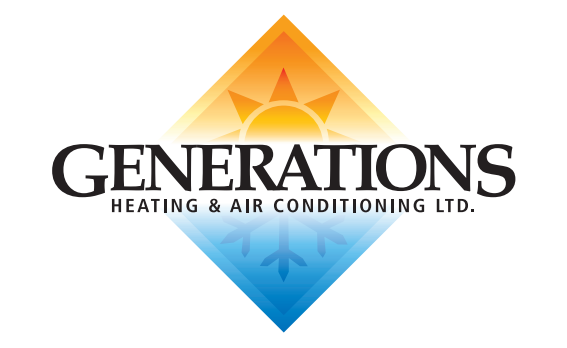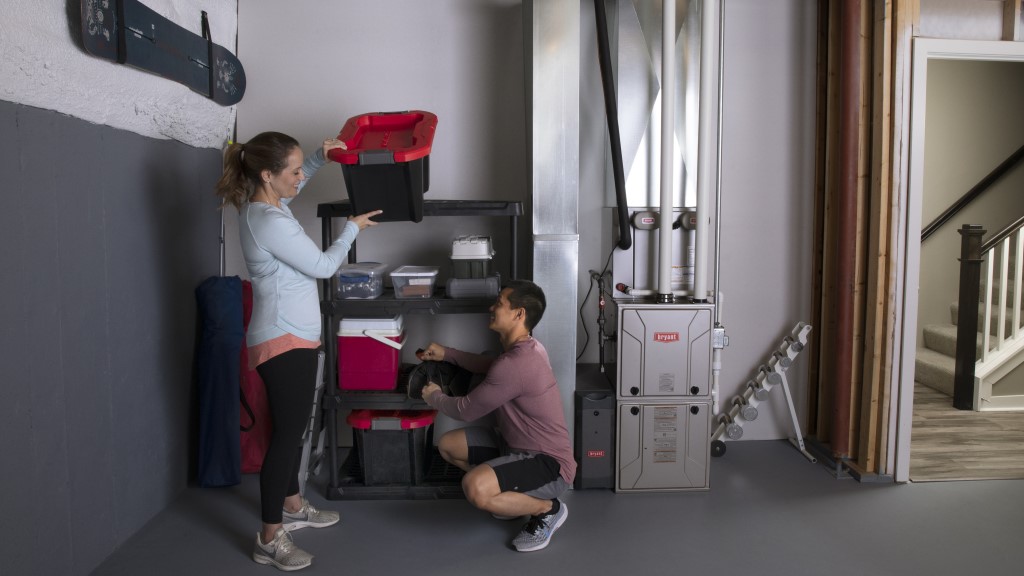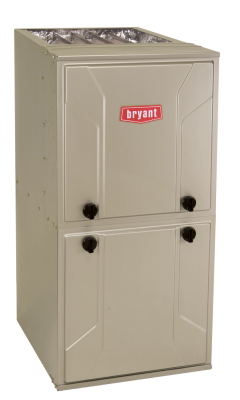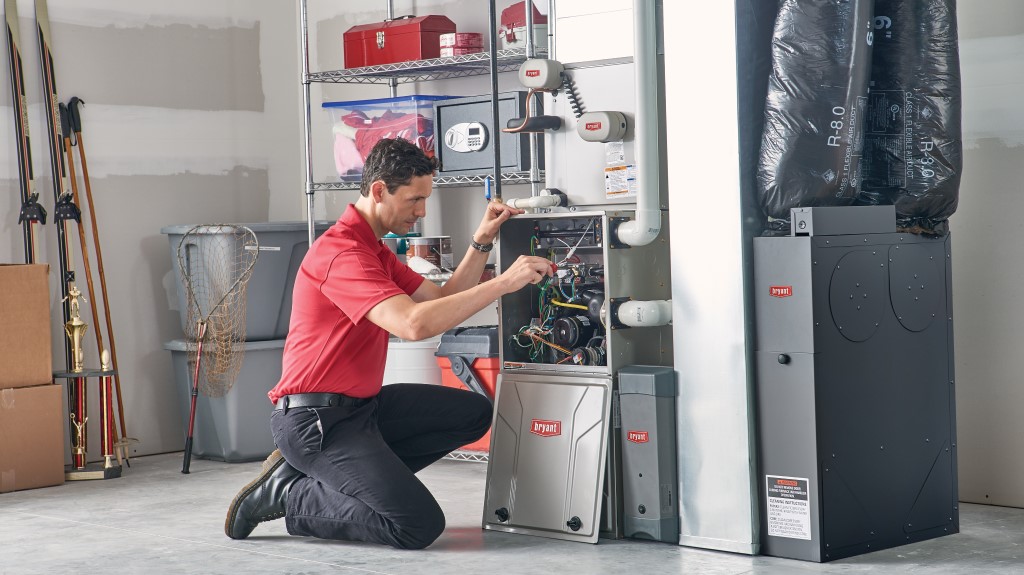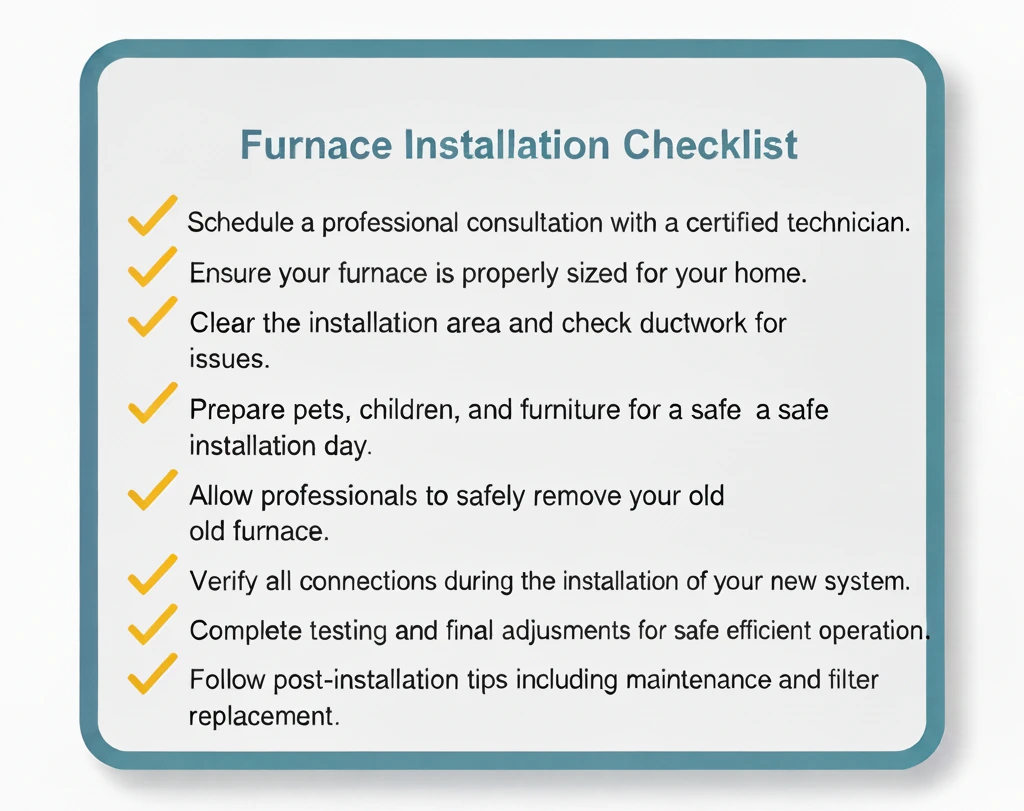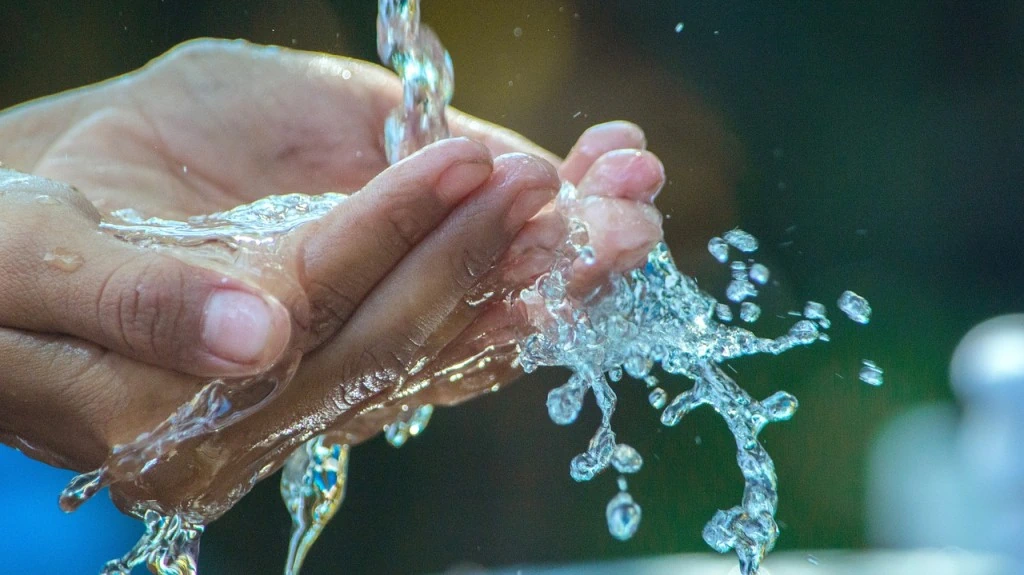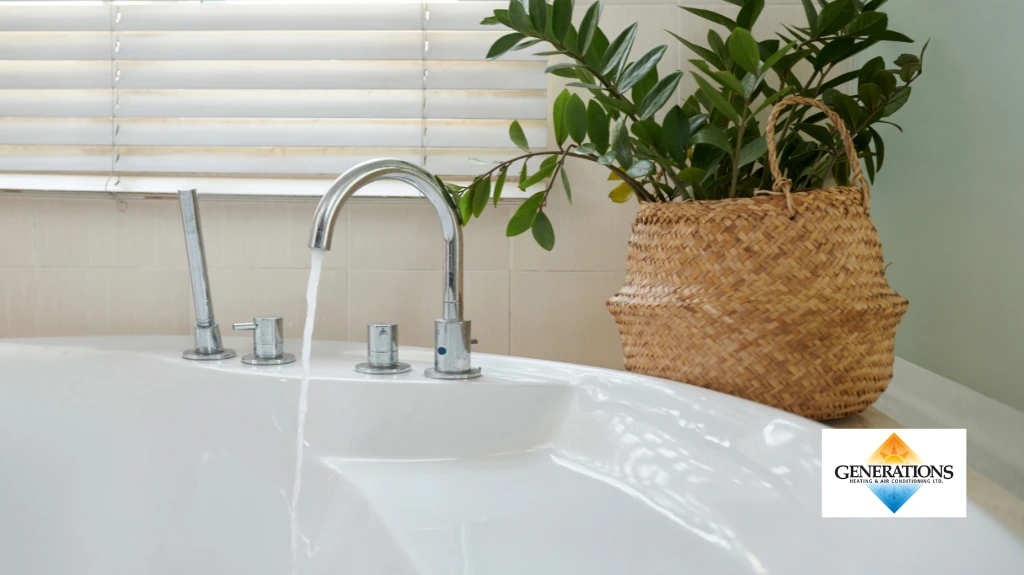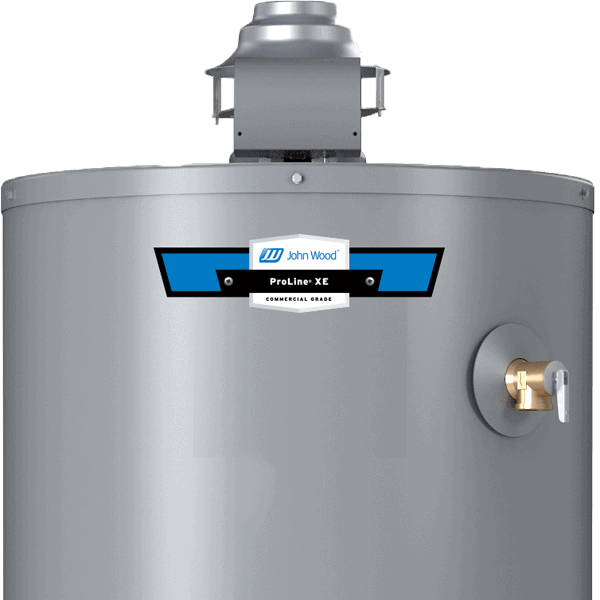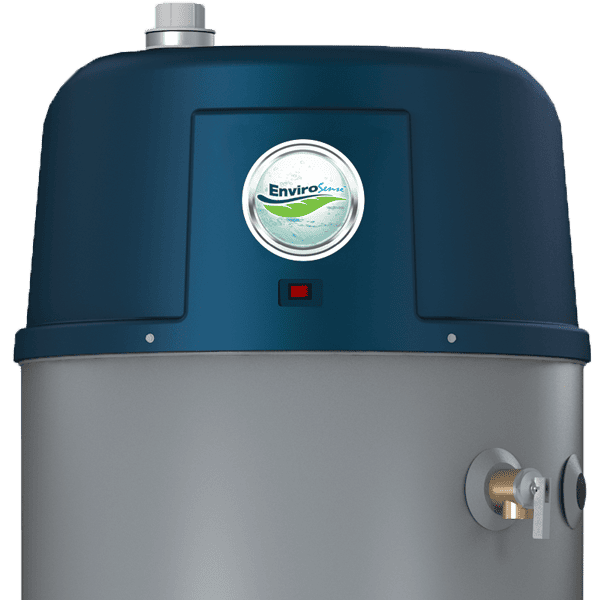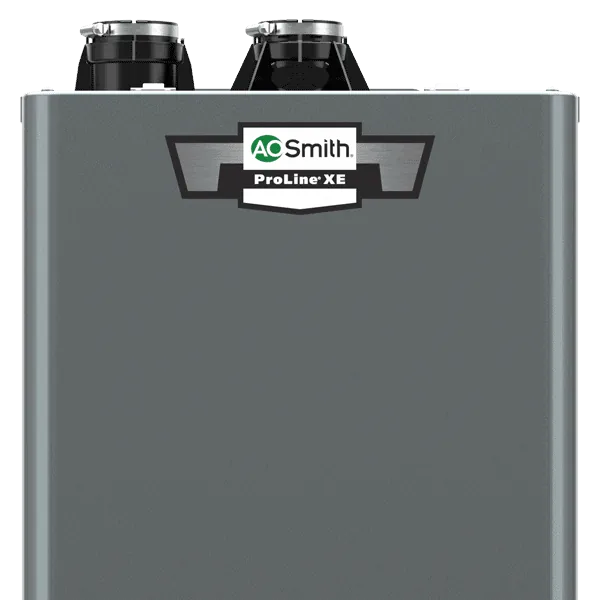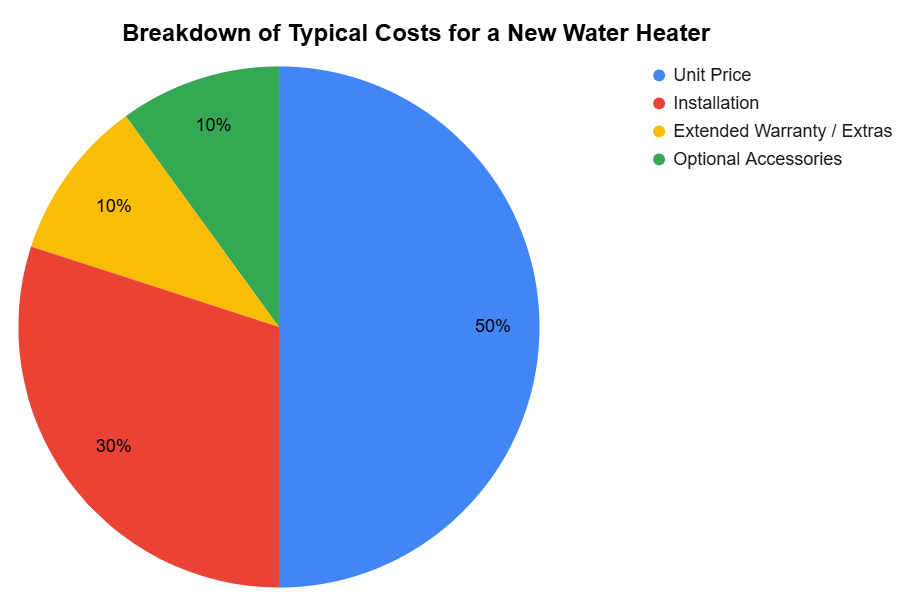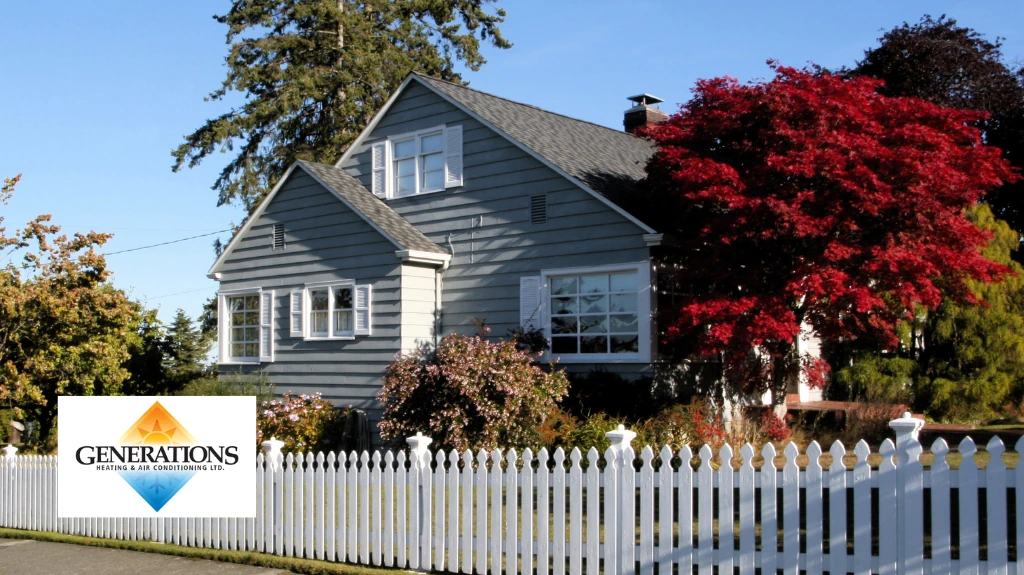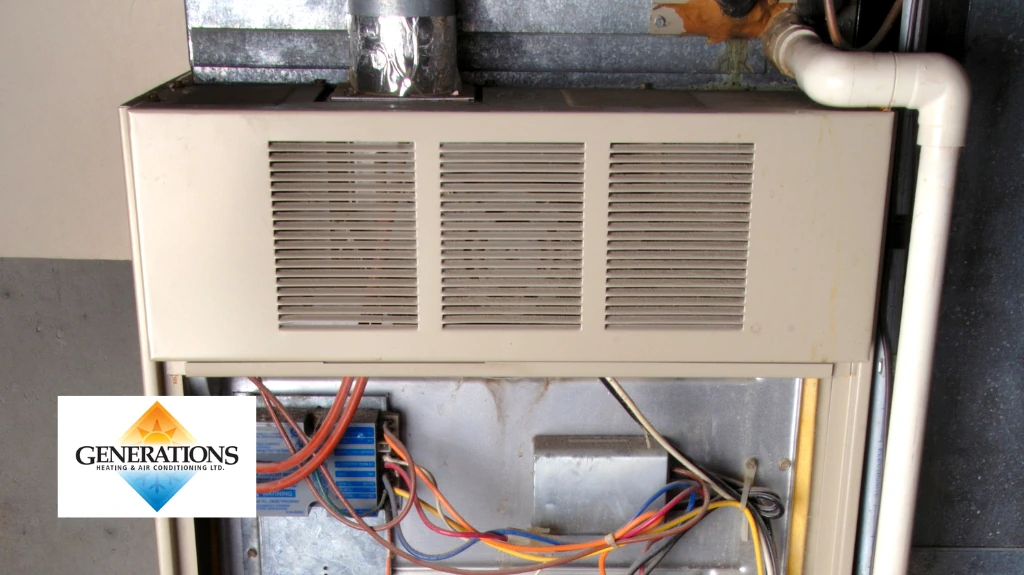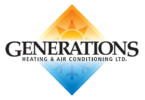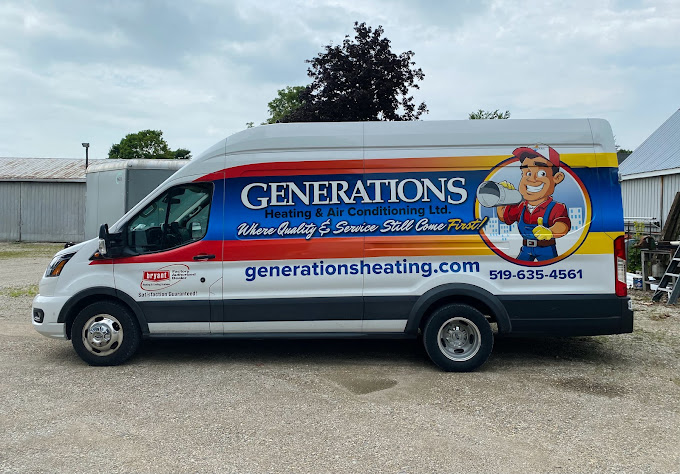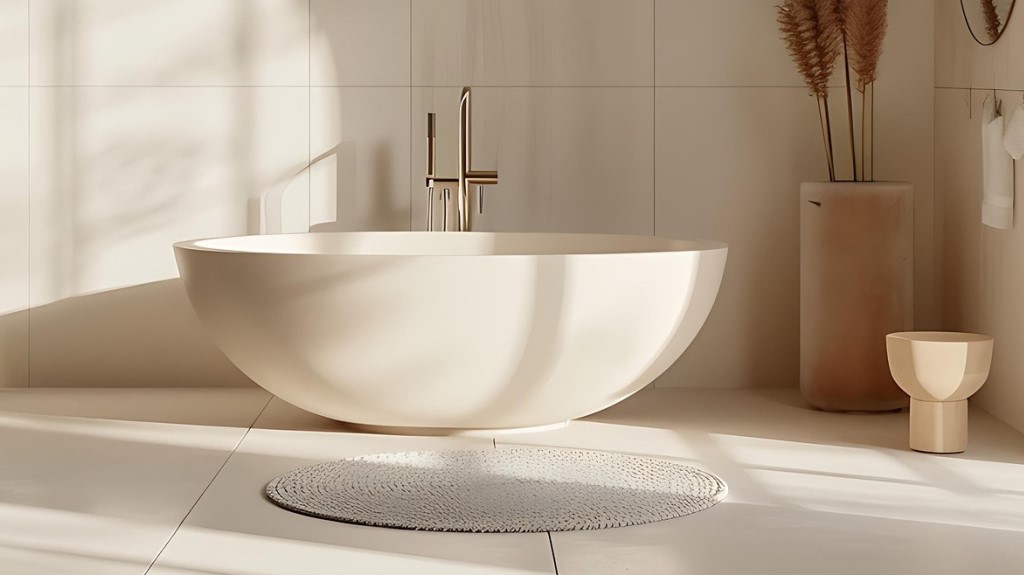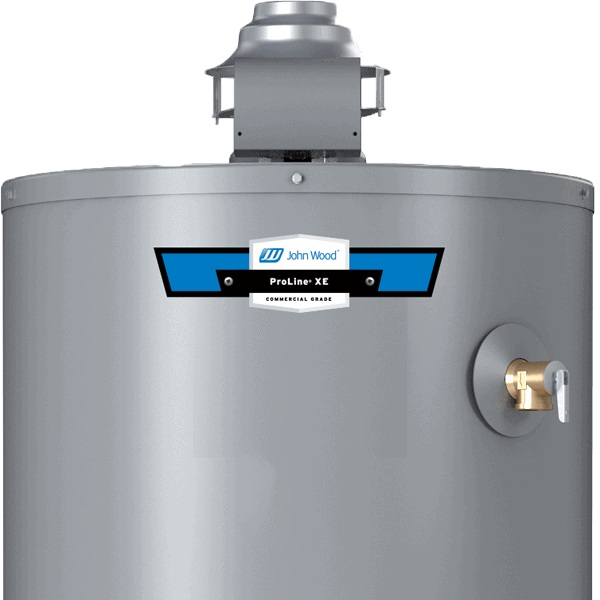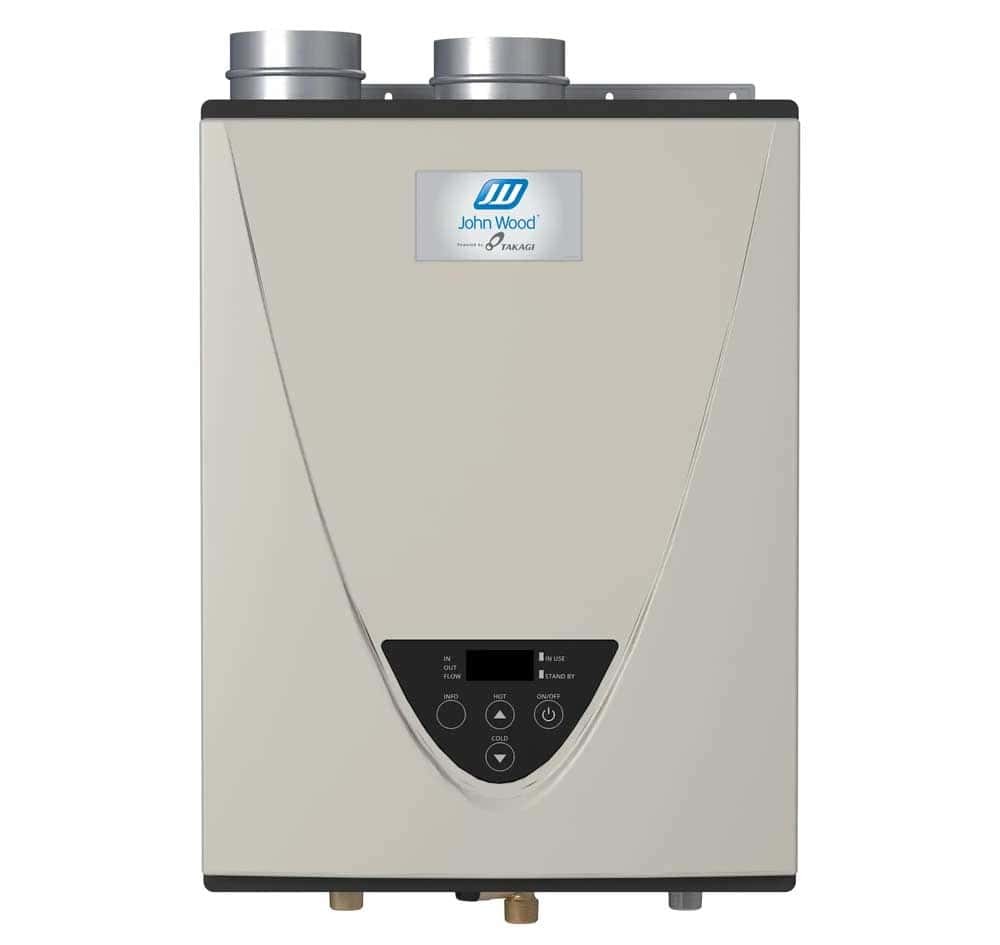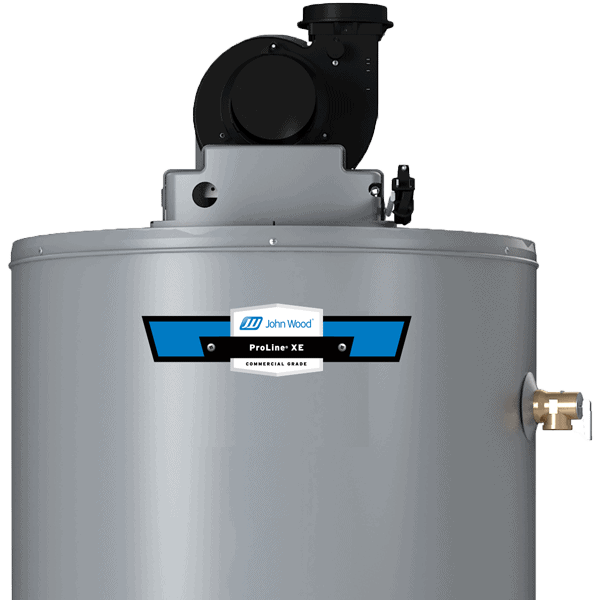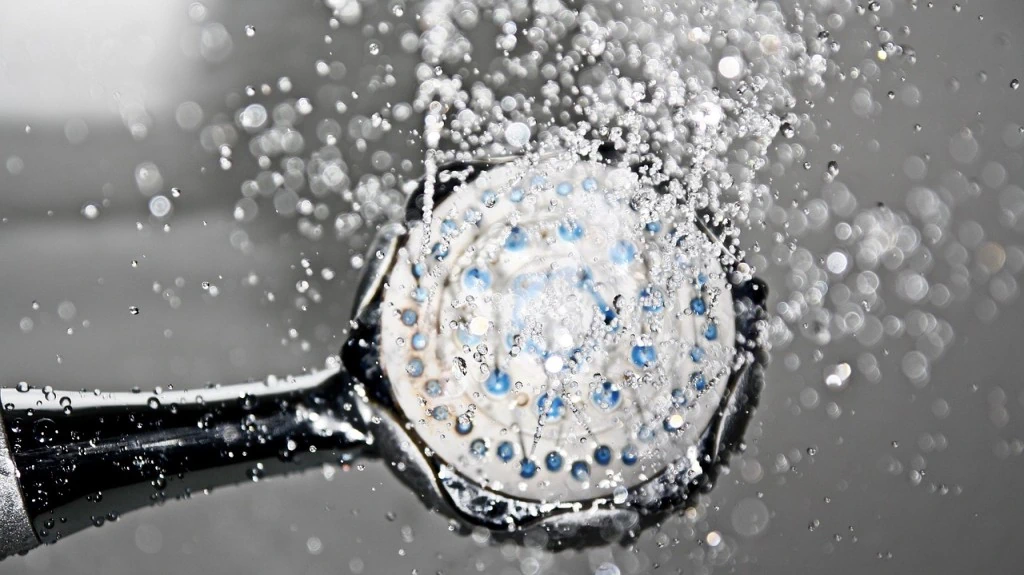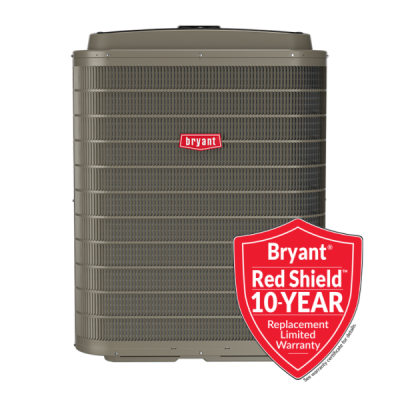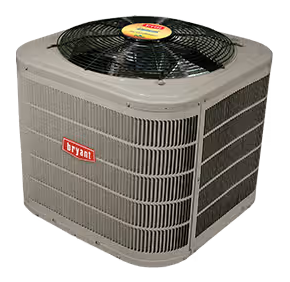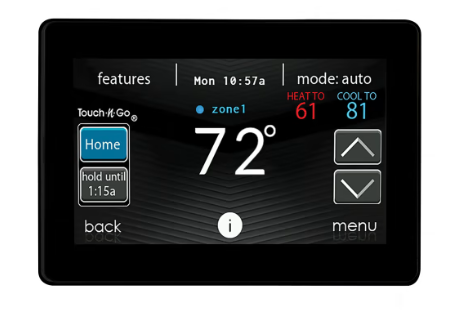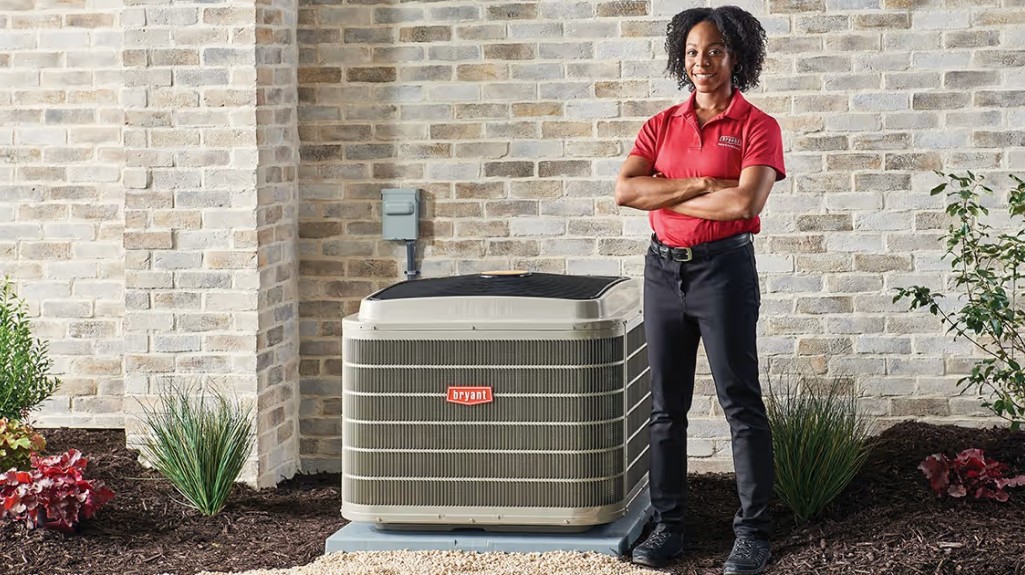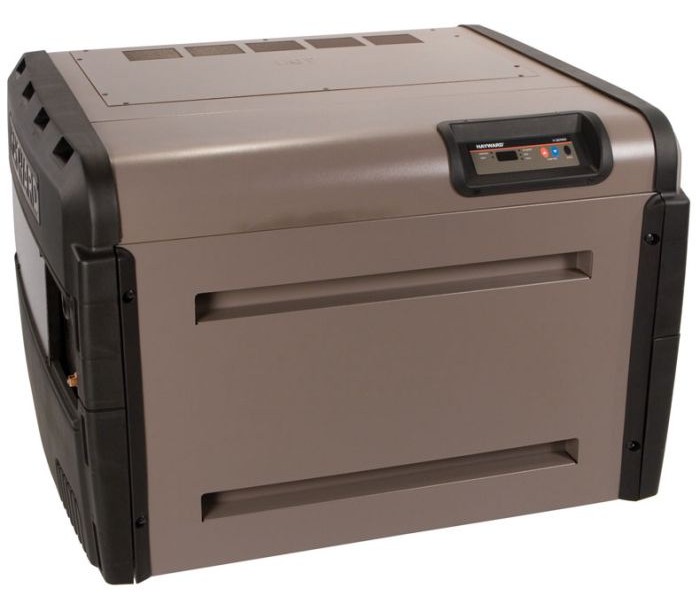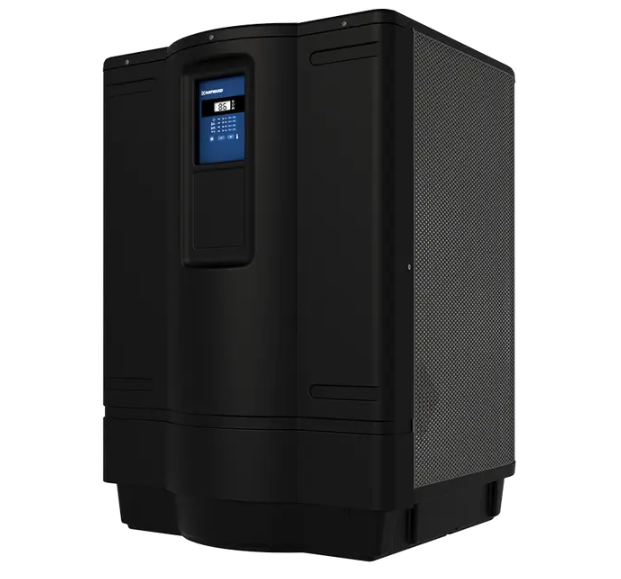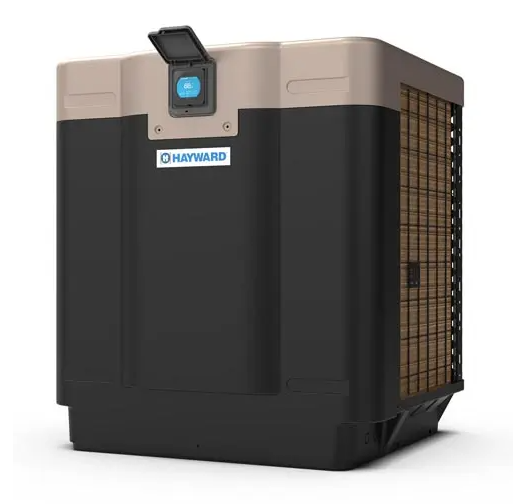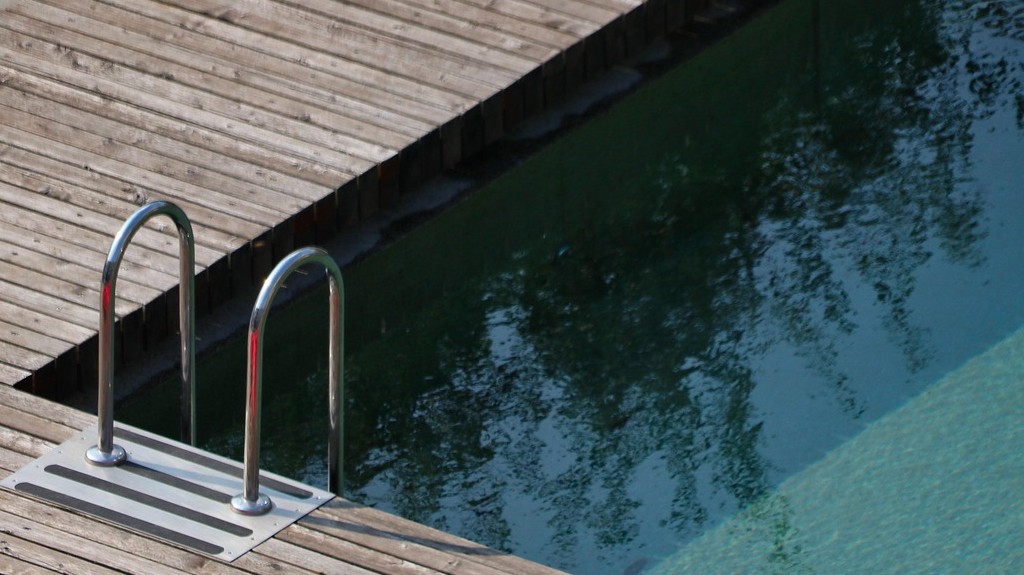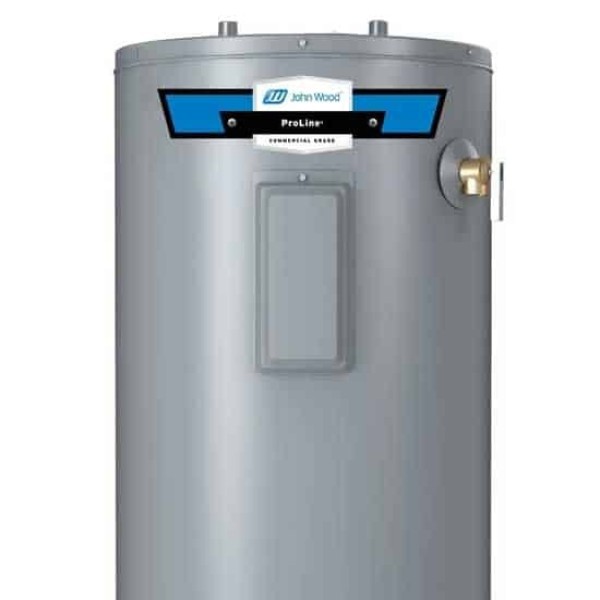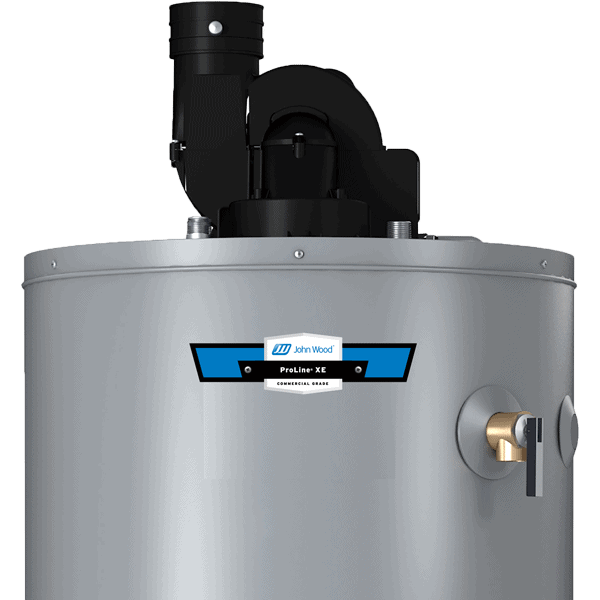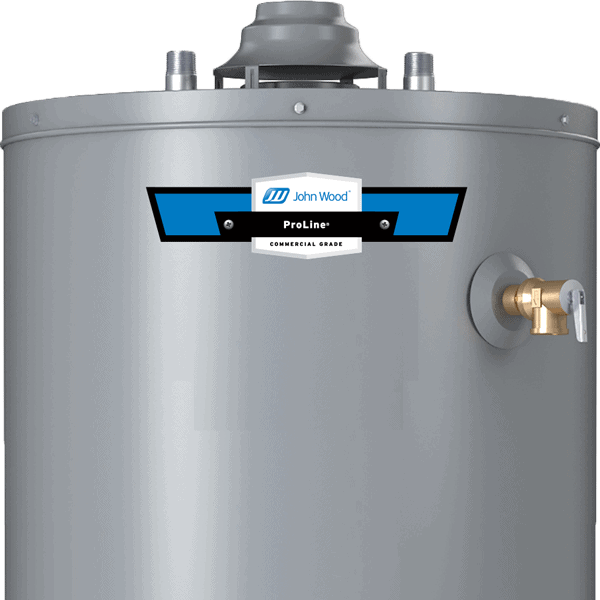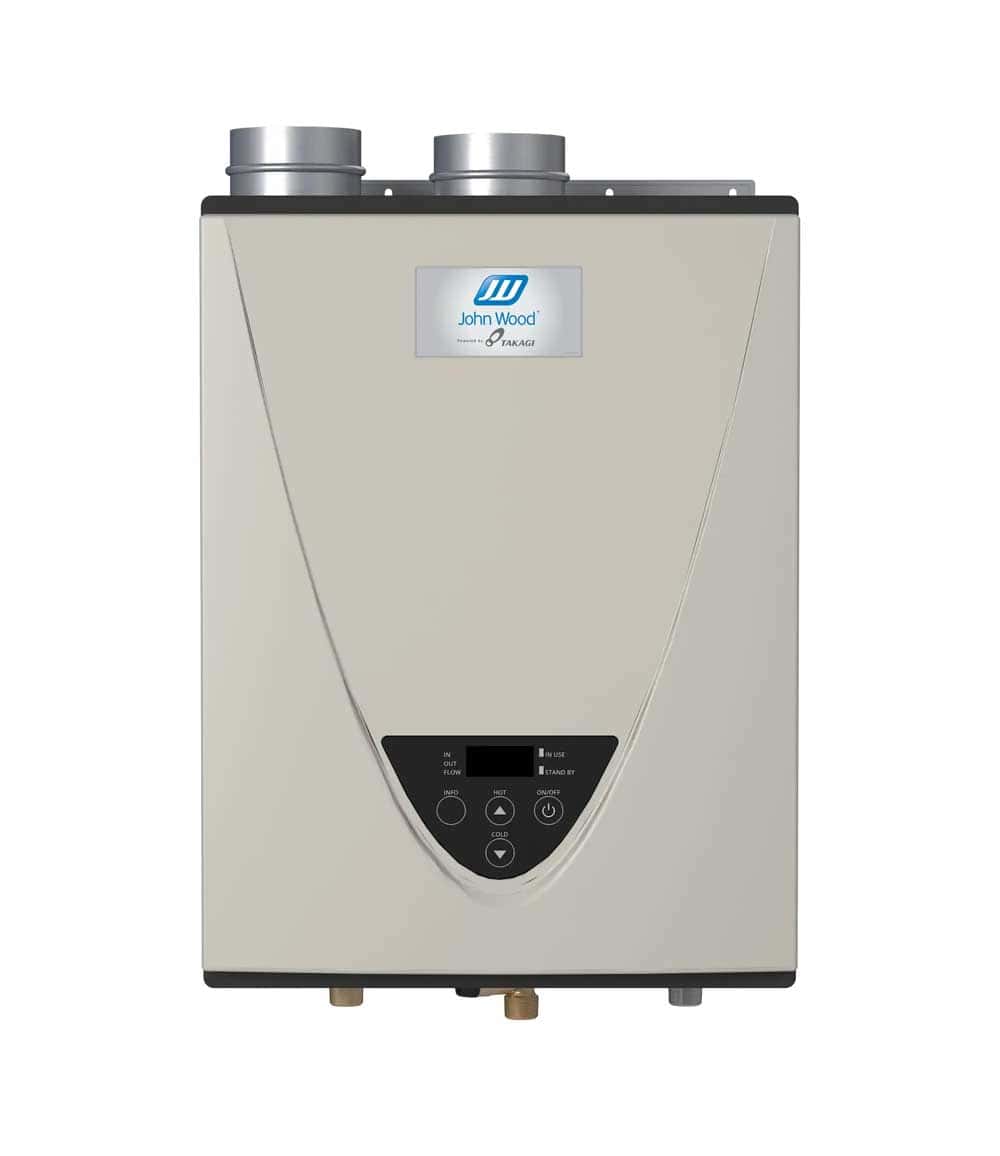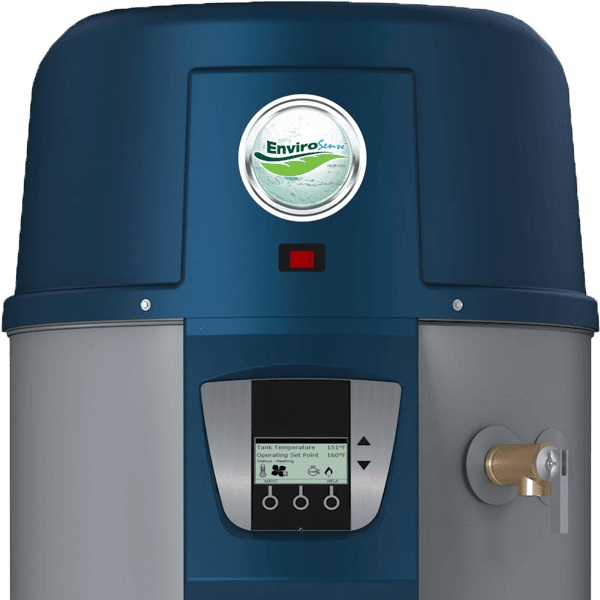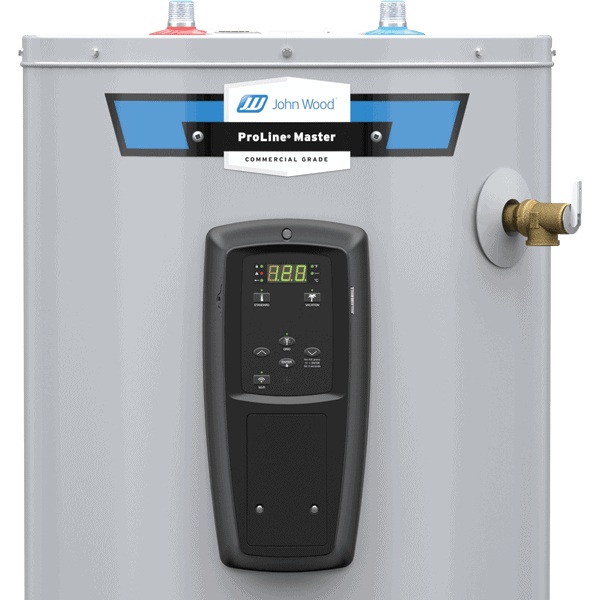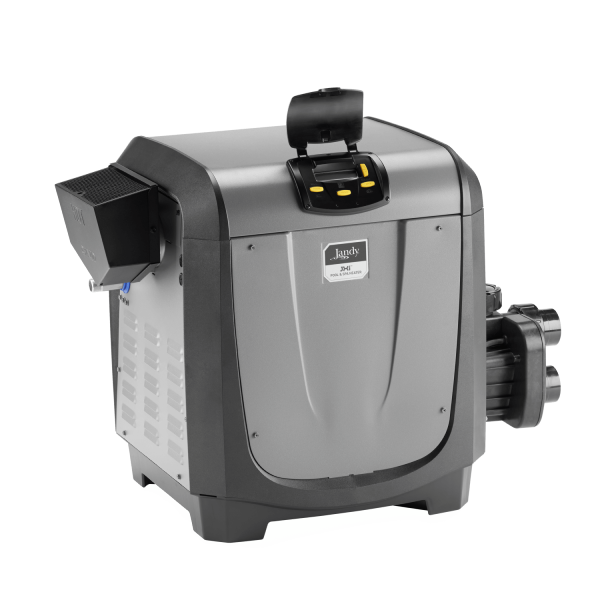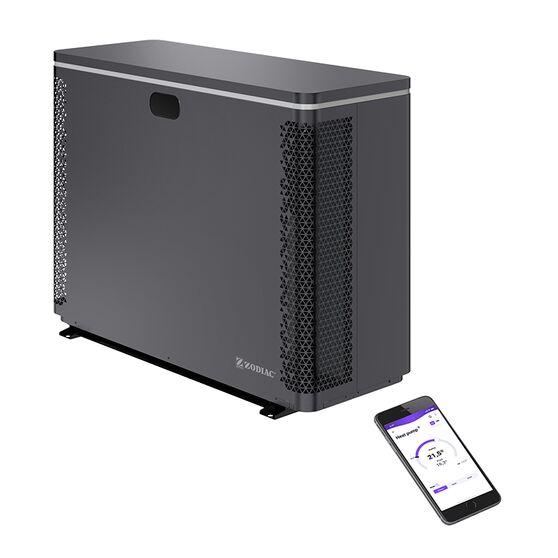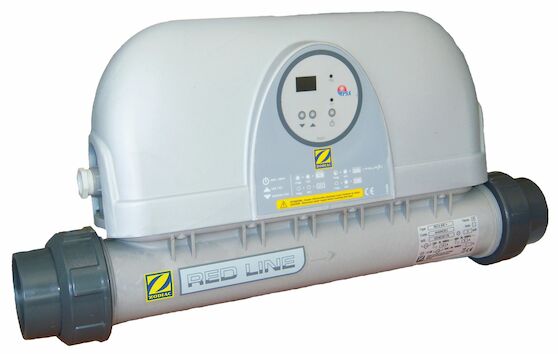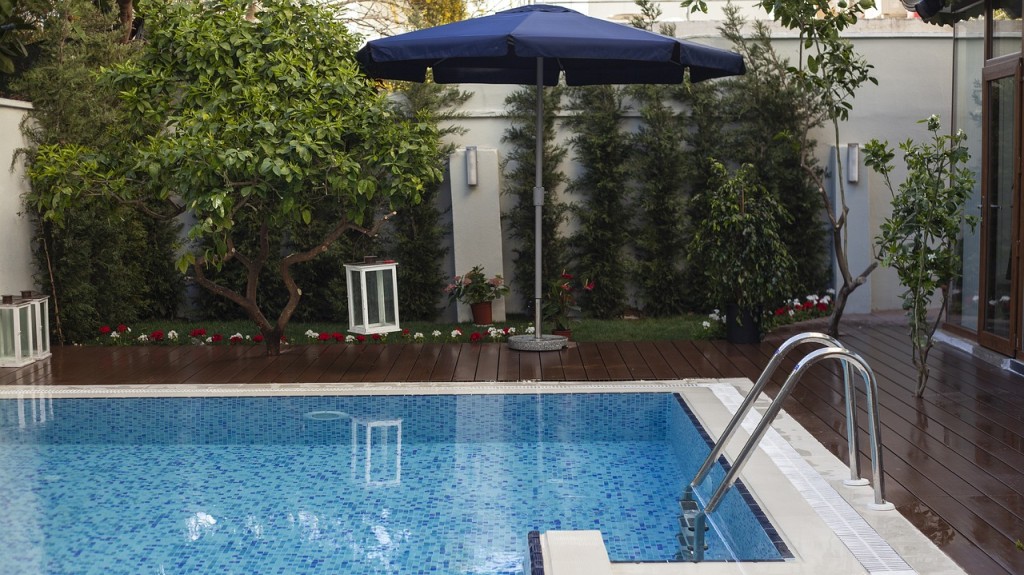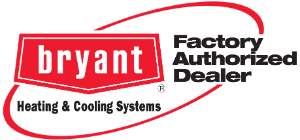Heat Pump VS Air Conditioner: A Complete Guide for Homeowners

Choosing between a heat pump and an air conditioner can feel confusing, especially when both systems offer reliable home comfort. While they may look similar from the outside, they operate differently and offer unique benefits when it comes to efficiency, effectiveness, and long-term cost.
In this guide, we’ll break down Heat Pump VS Air Conditioner in simple terms so you can understand how each system works, what it costs, and which one makes the most sense for your home. Whether you’re upgrading your cooling system or planning for a more energy-efficient setup, this comparison will help you make a confident, informed decision.
- What Is an Air Conditioner?
- What Is a Heat Pump?
- Efficiency Comparison: Heat Pump VS Air Conditioner
- Effectiveness Comparison: Cooling & Heating Performance
- Cost Comparison: Upfront, Operating & Maintenance Costs
- Pros & Cons of Each System
- Which Option Is Best for Your Home?
- Additional Resources
If you’d like expert help choosing the right option for your home, the team at Generations Heating & AC is always here to guide you.
Key Takeaways: Heat Pump VS Air Conditioner
- Dual Functionality: Heat pumps provide both heating and cooling, while air conditioners only provide cooling.
- Efficiency Matters: Heat pumps are often more energy-efficient for year-round comfort, but climate and system sizing impact performance.
- Cooling Performance: Both heat pumps and air conditioners deliver strong cooling in hot weather.
- Heating Performance: Heat pumps work well in moderate winters but may need a backup heating source in very cold climates.
- Cost Considerations: Air conditioners generally have lower upfront costs, while heat pumps can offer long-term energy savings.
- Climate is Key: Homeowners in colder regions may prefer AC with a separate heating system, while moderate climates benefit most from heat pumps.
- Professional Guidance Helps: Consulting with experts ensures proper system sizing, installation, and access to available rebates and incentives.
Heat Pump
- Provides both heating and cooling.
- More energy-efficient in moderate climates.
- Can lower annual heating costs.
- Most effective with a backup heat source in cold winters.
- Higher upfront cost but potential long-term savings.
Air Conditioner
- Provides cooling only — separate heating required.
- Excellent performance in hot summer weather.
- Lower initial purchase and installation cost.
- Simple system with minimal maintenance requirements.
- Best for homes with an existing furnace.
1. What Is an Air Conditioner?
An air conditioner is a cooling system designed to remove heat from the air inside your home and replace it with cool, comfortable air. While AC units come in many styles and sizes, they all serve one purpose: keeping your home at a comfortable temperature during warm weather.
Understanding the basics of how air conditioners work and where they’re most effective can help you decide if an AC-only setup is the right choice for your home.
Air conditioners are available in several different types, each offering unique benefits for different home layouts and cooling needs. Below is an overview of the most common options.
- Window air conditioners cool a single room and are installed directly in a window or a specially designed slot in a wall.
- Portable air conditioners provide cooling for small spaces and can be moved from room to room as needed.
- Ductless mini-split systems offer targeted cooling without the need for ductwork, making them ideal for additions, apartments, or older homes.
- Central air conditioning systems cool the entire home using a network of ducts, offering consistent comfort and better overall efficiency.
These types of air conditioners give homeowners flexibility, whether they need whole-home cooling or a simple solution for a single room.
How an Air Conditioner Works
While each type of AC looks different, they all work in a similar way. To put it simply, air conditioners move heat from inside your home to the outdoors. Here’s how that process works:
- Warm indoor air is pulled into the system and passed over cold coils filled with refrigerant, which absorbs the heat.
- The refrigerant carries the heat outside to the outdoor unit, where the heat is released into the air.
- Once the heat is removed, cool air is sent back into your home through vents or directly from the unit, depending on the system type.
- This process repeats continuously until your home reaches the temperature set on your thermostat.
This cycle ensures steady cooling without requiring you to adjust the system constantly.
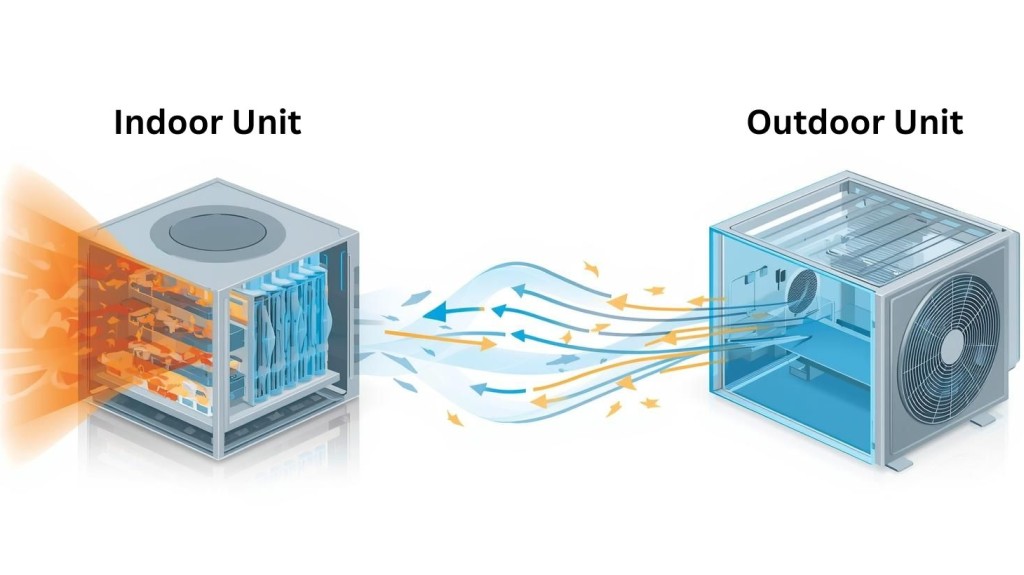
Air conditioners are typically used during warm or hot months when cooling is the main priority. They are especially effective in climates with distinct summer seasons or homes that benefit from powerful, consistent cooling.
AC-only systems are an excellent choice for homes that already rely on another method for heating, such as a gas or electric furnace. Below are the situations where an air-conditioner-only setup makes the most sense:
- Homeowners who want strong, reliable cooling during the summer months and already have a dedicated heating system for winter.
- Homes located in regions where winter temperatures drop low enough that a heat pump may require supplemental heat anyway.
- Homeowners who prefer the simplicity of having separate systems for heating and cooling.
- Houses with existing ductwork that can easily accommodate a central air conditioner.
In these situations, an air conditioner provides a straightforward, effective solution for staying cool, especially when paired with a furnace or another dedicated heating source.
2. What Is a Heat Pump?
A heat pump is a versatile home comfort system that can both cool and heat your home using the same equipment. Unlike a traditional air conditioner, which only cools, a heat pump can reverse its operation to provide warmth during the colder months. This dual functionality makes it a popular choice for homeowners looking to simplify their heating and cooling needs while improving energy efficiency.
How a Heat Pump Works
Heat pumps operate on a principle similar to air conditioners, but with the ability to reverse the flow of refrigerant. Here’s a simple explanation of how a heat pump works:
- During the summer, a heat pump functions like an air conditioner by removing heat from inside the home and releasing it outdoors.
- During the winter, the system reverses, extracting heat from the outdoor air (even in cold temperatures) and bringing it inside to warm the home.
- The refrigerant acts as a carrier, transferring heat in either direction depending on whether the system is in cooling or heating mode.
- A thermostat controls the system, automatically switching between heating and cooling to maintain the desired indoor temperature.
This reversible process allows a heat pump to efficiently provide year-round comfort without the need for separate heating and cooling systems.
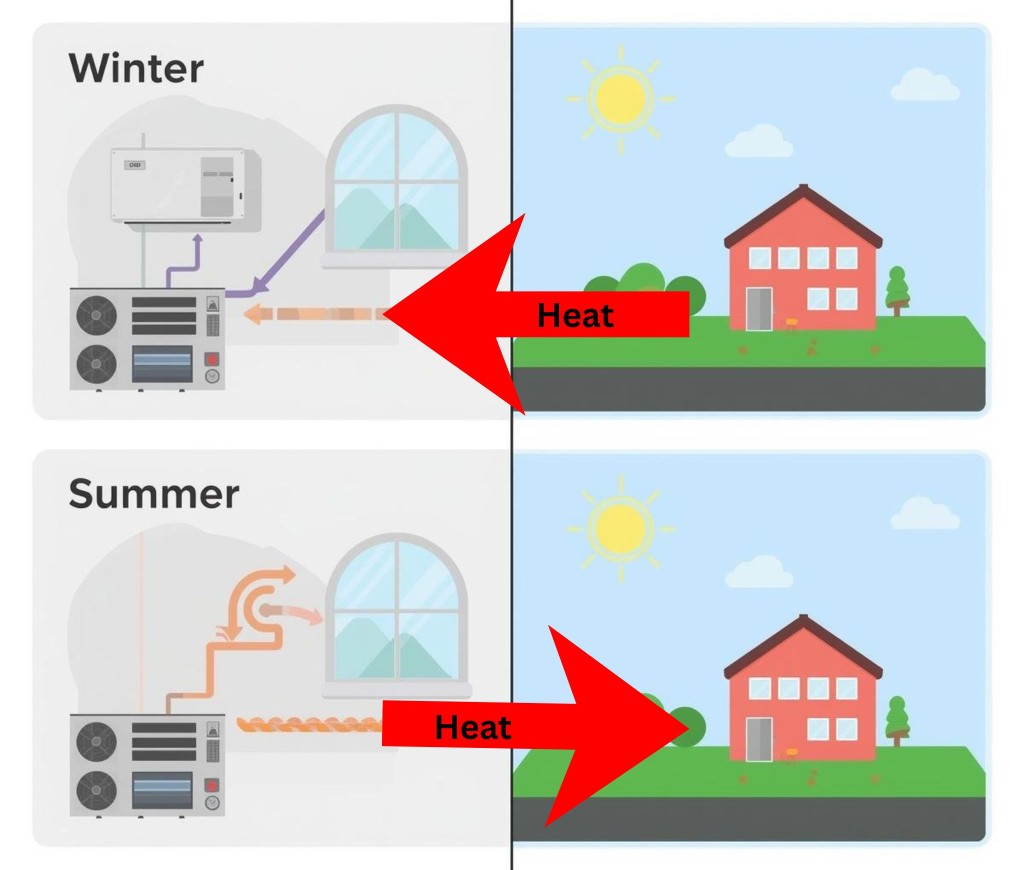
Heat pumps are most effective in moderate climates where winter temperatures don’t regularly fall below extreme cold. In these conditions, they can heat and cool efficiently while reducing energy consumption compared to traditional systems.
Below are some situations where a heat pump can be particularly beneficial for homeowners:
- Homes that need both heating and cooling from a single, energy-efficient system.
- Houses located in regions with milder winters, where the heat pump can meet most heating needs without backup systems.
- Homeowners looking to reduce their energy bills and environmental impact by using a system that transfers heat rather than generating it.
- Properties where adding a separate furnace or boiler would be costly or unnecessary.
- Homeowner in a colder climate who want to reduce their energy bills and environmental impact, who have a backup system when the temperatures become extremely cold.
In the right conditions, a heat pump provides a convenient and efficient solution, giving you consistent comfort throughout the year while simplifying your home’s heating and cooling setup.
3. Efficiency Comparison: Heat Pump VS Air Conditioner
When it comes to choosing between a heat pump and an air conditioner, energy efficiency is one of the most important factors for homeowners. Efficiency affects not only your monthly energy bills but also the environmental impact of your home. Understanding how these systems perform in different climates and comparing their seasonal energy ratings can help you make a smarter choice.
Energy Efficiency Ratio (SEER or SEER2)
One way to measure the efficiency of both heat pumps and air conditioners is by looking at their Seasonal Energy Efficiency Ratio (SEER or SEER2). This rating indicates how much cooling a system provides per unit of energy consumed over a typical cooling season.
- Higher SEER or SEER2 ratings indicate more efficient systems that use less electricity to cool the same amount of space.
- Modern air conditioners often have SEER ratings between 14 and 22, with higher numbers offering better energy efficiency.
- Heat pumps also use SEER ratings for cooling, but when heating, their efficiency is measured using the Heating Seasonal Performance Factor (HSPF).
- Advanced heat pumps can achieve efficiency levels that outperform traditional air conditioners, especially when providing both heating and cooling year-round.
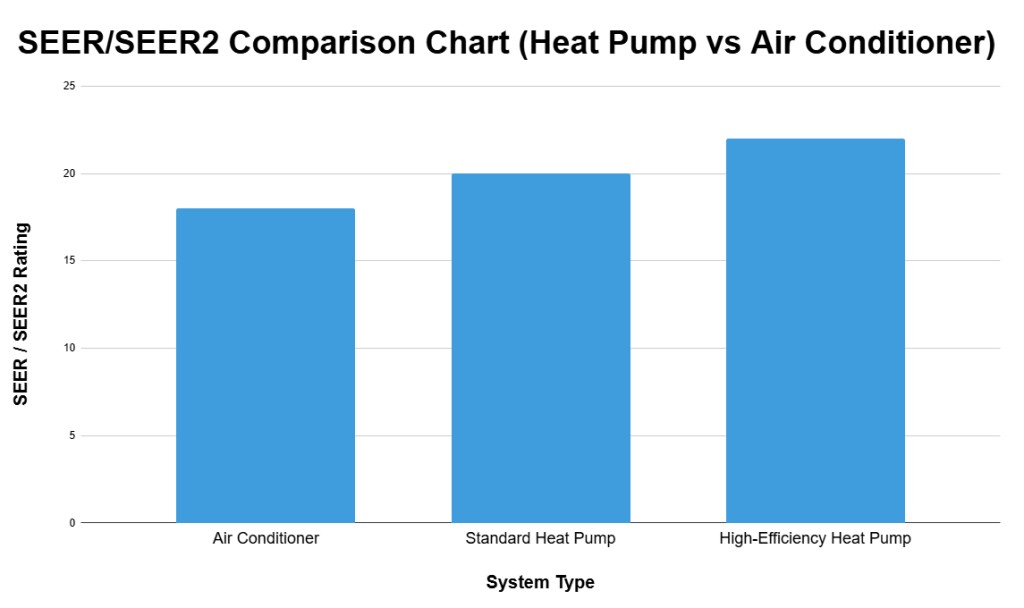
Energy Use
While both systems are efficient at cooling, there are differences in energy use between heat pumps and air conditioners.
- Air conditioners only cool, so homeowners must rely on a separate heating system in winter, which can increase overall energy consumption.
- Heat pumps transfer heat rather than generate it, which can reduce energy use for both heating and cooling, particularly in milder climates.
- Electric resistance heaters paired with AC systems tend to consume more electricity than heat pumps when heating is required.
- Proper sizing and installation are critical for both systems to achieve maximum efficiency and prevent unnecessary energy waste.
Ontario Climate Considerations
In Ontario, where winters can be very cold, a heat pump may require supplemental heating during the coldest months to maintain comfort efficiently.
For Ontario homeowners, the key takeaways about efficiency are clear:
- Both systems can provide efficient cooling during the summer, but heat pumps offer the added benefit of efficient heating in moderate conditions.
- SEER/SEER2 ratings are important to compare when selecting either system, as higher ratings mean lower energy bills.
- Homeowners should consider their climate zone and heating needs when evaluating whether a heat pump or an air conditioner is the most efficient choice.
- Professional installation and proper sizing are essential for maximizing efficiency and ensuring reliable performance.
Understanding these efficiency differences can help you make a choice that balances comfort, cost, and energy savings for your home throughout the year.
4. Effectiveness Comparison: Cooling & Heating Performance
When comparing a heat pump and an air conditioner, it’s important to consider effectiveness, or how well each system keeps your home comfortable in real-world conditions. While both systems are designed to cool your home, heat pumps also provide heating, which adds another layer to the comparison.
Understanding how they perform in both hot and cold weather can help you choose the right system for your needs.
Cooling Performance
Both heat pumps and air conditioners provide excellent cooling during the summer months, but there are some differences in how they operate and perform.
- Air conditioners are designed solely for cooling and generally maintain consistent performance even during extreme heat.
- Heat pumps provide similar cooling performance to air conditioners in warm weather, often with comparable energy efficiency.
- The size and capacity of the system are critical for cooling effectiveness, regardless of whether it is a heat pump or an air conditioner.
- Both systems require proper installation and regular maintenance to ensure even airflow and consistent indoor temperatures.
Overall, you can expect reliable cooling from both systems, with heat pumps offering the added benefit of heating when the season changes.
Heating Performance
This is where heat pumps differ significantly from air conditioners, as air conditioners cannot heat a home. Heat pumps extract heat from the outdoor air and transfer it indoors, providing energy-efficient warmth during the winter.
- In moderate winter climates, heat pumps can provide most or all of the home’s heating needs efficiently.
- In very cold temperatures, heat pump performance can drop, reducing their ability to heat a home without additional support.
- Many homes in colder climates pair heat pumps with backup heating sources, such as electric resistance heaters or gas furnaces, to ensure consistent warmth on the coldest days.
- The combination of a heat pump and backup heating provides both energy efficiency and reliability throughout the year.
By understanding how heat pumps perform in different temperature ranges, homeowners can plan for both comfort and efficiency, ensuring their system meets their heating and cooling needs without compromise.
Heat Pump Performance in Cold Weather
Heat pumps are designed to work efficiently in a range of temperatures, but their performance can vary depending on how cold it gets outside. Standard heat pumps typically operate most efficiently when outdoor temperatures are above -5°C to 0°C, providing reliable heating without needing supplemental systems.
However, modern high-efficiency heat pumps are engineered to handle colder conditions. Many advanced models can maintain effective heating at temperatures as low as -15°C to -20°C, making them suitable for colder climates while still reducing energy use compared to traditional electric or fossil-fuel heating systems.
Investing in a high-efficiency heat pump allows homeowners to enjoy year-round comfort, even during harsh winter months, with minimal reliance on backup heating sources.
In summary, while both heat pumps and air conditioners deliver excellent cooling, heat pumps add the ability to heat your home efficiently. For homes in colder regions, pairing a heat pump with a backup heating system ensures consistent comfort all year round.
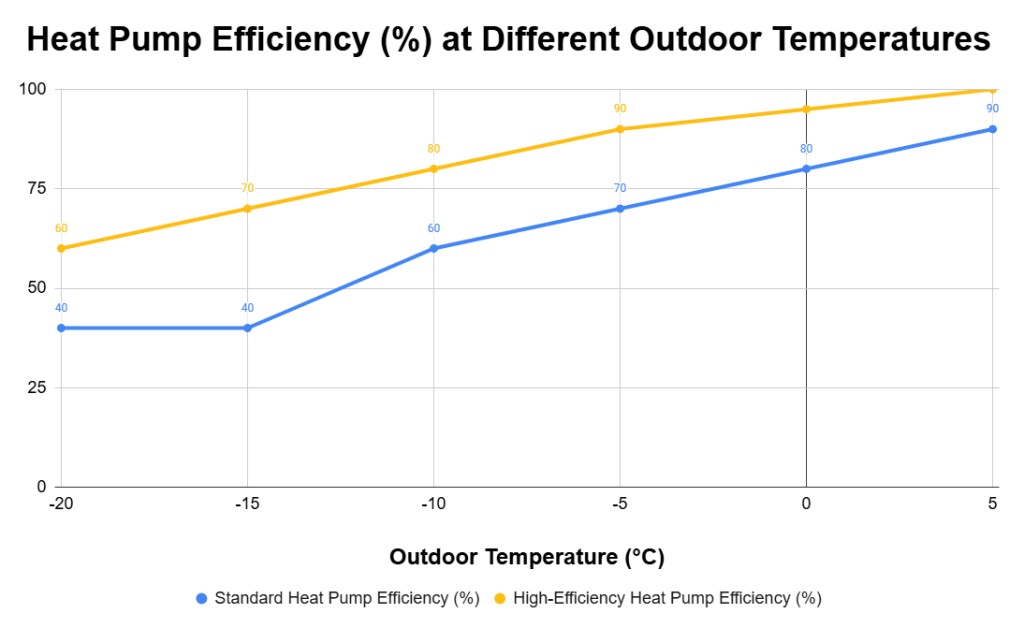
5. Cost Comparison: Upfront, Operating & Maintenance Costs
When deciding between a heat pump and an air conditioner, understanding the full cost picture is essential. While upfront expenses are important, it’s equally crucial to consider operating costs, long-term maintenance, and available incentives.
Evaluating these factors helps you make a choice that balances your comfort, efficiency, and budget.
Purchase & Installation Costs
The initial investment for a heat pump or air conditioner varies depending on system type, size, and installation requirements.
- Air conditioners typically have lower upfront costs than heat pumps, especially for single-room or central systems.
- Heat pumps generally cost more to purchase and install because they provide both heating and cooling in one system.
- Installation costs can increase if ductwork upgrades or modifications are needed for either system.
- Professional installation is recommended for both systems to ensure optimal performance and efficiency.
Considering these costs upfront helps you budget appropriately for your new system.
Expected Energy Savings
Long-term energy use can significantly impact the overall cost of your heating and cooling system.
- Heat pumps transfer heat rather than generating it, which can reduce electricity consumption and energy bills compared to running separate heating and cooling systems.
- Air conditioners efficiently cool homes but require a separate heating system in winter, which can increase overall energy costs.
- High-efficiency models of both heat pumps and AC units can deliver greater savings over time by using less electricity per unit of cooling or heating.
- Energy savings will depend on climate, system size, and proper installation.
By considering long-term energy use, homeowners can better assess the true cost of their system over its lifespan.
Lifespan & Long-Term Maintenance
The lifespan and maintenance requirements of a system affect both its reliability and total cost of ownership.
- Air conditioners typically last 12–15 years with regular maintenance.
- Heat pumps usually have a similar lifespan, around 12–15 years, though high-efficiency models may last longer with proper care.
- Regular maintenance, including cleaning, filter replacement, and annual professional inspections, is essential to maximize performance and lifespan for both systems.
- Neglecting maintenance can lead to higher repair costs and reduced efficiency over time.
Understanding these factors ensures that homeowners plan for ongoing costs and protect their investment.

6. Pros & Cons of Each System
Choosing between a heat pump and an air conditioner isn’t just about efficiency or effectiveness; it’s also important to weigh the advantages and disadvantages of each system. Understanding the pros and cons can help you make an informed decision that fits your comfort needs, budget, and climate.
Heat Pump Pros & Cons
Heat pumps offer the unique ability to both heat and cool your home, but they also have some limitations depending on climate and installation.
Pros:
- Heat pumps provide year-round comfort by offering both heating and cooling in a single system.
- They are energy-efficient, often reducing electricity consumption compared to separate heating and cooling systems.
- Heat pumps can lower overall home energy costs, particularly in moderate climates.
- They have a smaller environmental footprint since they transfer heat instead of generating it through combustion or resistance heating.
Cons:
- Heat pumps can lose efficiency in extremely cold climates, sometimes requiring a backup heating source.
- The upfront installation cost is typically higher than a standard air conditioner alone.
- Proper sizing and installation are crucial, and mistakes can reduce efficiency and comfort.
- Some older homes may require ductwork upgrades or additional modifications to support a heat pump.
Overall, heat pumps are an excellent choice for homeowners looking for an all-in-one system, especially in areas with moderate winters.
Air Conditioner Pros & Cons
Air conditioners are a tried-and-true solution for home cooling, offering reliable performance, but they only provide cooling.
Pros:
- Air conditioners deliver strong, consistent cooling during hot weather.
- They are generally less expensive to install than a heat pump.
- AC systems are straightforward and well-understood, making maintenance and repairs easier.
- Homes with existing heating systems can simply add an AC unit without changing the heating setup.
Cons:
- Air conditioners cannot provide heating, so a separate heating system is required in colder months.
- Operating two separate systems (AC + furnace) can increase overall energy costs compared to a heat pump in moderate climates.
- AC-only setups may be less efficient if a home requires heating and cooling throughout the year.
In summary, air conditioners are ideal for homeowners who only need reliable cooling and already have a heating system in place, while heat pumps offer a more versatile solution with both heating and cooling capabilities, particularly in milder climates.
| Heat Pump Pros | Air Conditioner Pros |
|---|---|
| Can heat and cool your home with one unit. | Excellent and reliable cooling performance in hot weather. |
| More energy-efficient than ACs in moderate climates. | Lower upfront cost compared to heat pumps. |
| Can significantly reduce heating costs when paired with electricity. | Simple system with less maintenance required. |
| Heat Pump Cons | Air Conditioner Cons |
| May require a backup heat source during very cold winters. | Only provides cooling—separate heating system still needed. |
| Higher upfront install cost than AC-only systems. | Less energy-efficient overall compared to heat pumps. |
| Cold-weather performance varies by model efficiency. | Requires more power during extreme heat waves. |
7. Which Option Is Best for Your Home?
After comparing heat pumps and air conditioners in terms of efficiency, performance, and pros and cons, the next step is deciding which system is the right fit for your home. The best choice depends on factors like your local climate, your budget and energy goals, and whether you need both heating and cooling in a single system.
Considering these points carefully can help you make a decision that balances comfort, cost, and long-term efficiency.
Climate Considerations
Your local climate is a major factor when choosing between a heat pump and an air conditioner.
- Heat pumps are most effective in moderate climates where winter temperatures rarely fall extremely low.
- In regions with harsh, cold winters, a heat pump may need a supplemental heating source to maintain comfort.
- Air conditioners perform consistently in hot weather, making them ideal for homes where summer cooling is the primary concern.
- Homeowners in areas with both hot summers and very cold winters may benefit from a combination of a heat pump and a backup furnace or boiler.
- If you live in a colder climate, consider getting an advanced, high efficiency heat pump that can maintain effective heating at temperatures as low as -15°C to -20°C.
By taking climate into account, you can ensure that your system will provide reliable comfort year-round.
Budget & Energy Goals
Your budget and energy goals also play a key role in the decision-making process.
- Heat pumps typically have a higher upfront cost than air conditioners, but they can reduce long-term energy bills by efficiently providing both heating and cooling.
- Air conditioners usually cost less to install, but pairing them with a separate heating system can increase overall operating costs.
- Homeowners focused on energy efficiency and reducing environmental impact may prefer a heat pump for its dual functionality.
- Those prioritizing a lower initial investment may choose an air conditioner if they already have an efficient heating system in place.
Balancing upfront costs with long-term savings can help you choose a system that meets both your financial and energy goals.
Whether You Need Both Heating and Cooling
Finally, consider whether you need both heating and cooling in one system.
- If you want a single system to manage both home heating and cooling, a heat pump is usually the best option.
- If your home already has an efficient heating system, an air conditioner may be sufficient for cooling needs.
- Heat pumps provide convenience and reduce the need for multiple systems, which can be appealing for homeowners looking for simplicity.
- AC-only setups can work well for homes that primarily require cooling, especially when paired with a reliable furnace or boiler.
By evaluating your heating and cooling needs, you can select the system that provides the most comfort and efficiency for your home.
In conclusion, the best option depends on a combination of climate, budget, energy goals, and whether you want a single system for year-round comfort. Homeowners in Ontario can make a confident choice by considering these factors and consulting with experienced professionals to determine which system fits their home best.
| Best Choice: Heat Pump | Best Choice: Air Conditioner |
|---|---|
| Ideal for homeowners who want both heating and cooling in one efficient system. | Ideal for homeowners who already have a reliable furnace for heating. |
| Works best in moderate to cold climates when using a high-efficiency model. | Works best in areas with hot summers but mild or minimal winter heating needs. |
| Great option for lowering long-term energy costs, especially if electricity rates are competitive. | Best for homeowners who want lower upfront installation costs. |
| Perfect for homes interested in reducing carbon footprint and maximizing energy efficiency. | Suitable for AC-only homes where heating needs are handled separately and efficiently. |
| Ideal for year-round comfort when paired with a backup heat source in very cold regions. | Ideal if installing a heat pump is not practical due to budget or home layout. |
8. Additional Resources
Choosing between a heat pump and an air conditioner is easier when you have access to reliable information and local resources. The right guidance can help you understand system options, compare efficiency, and take advantage of cost-saving programs. Below are several resources that can help you make an informed decision.
Generations Heating & Air Conditioning Services
The team at Generations Heating & Air Conditioning offers professional guidance, installation, and maintenance for both heat pumps and air conditioners. Their services can help you select the right system for your home and ensure it operates efficiently.
- Generations Heating & AC provides expert consultations to help homeowners determine which heating and cooling system best fits their needs.
- They offer professional installation of both heat pumps and air conditioners, ensuring optimal performance and efficiency.
- Generations also provides ongoing maintenance and repairs to keep your system running smoothly year-round.
- Their team can help you understand available rebates and incentives when choosing a new system.
By working with Generations Heating & AC, homeowners can gain peace of mind knowing their system is installed correctly and performing efficiently.
Government Efficiency Guides
Understanding efficiency standards can help you choose a system that reduces energy use and lowers costs. Several government resources provide valuable information on seasonal ratings, energy savings, and system performance.
- Canada’s Natural Resources Canada (NRCan) website offers guides on energy-efficient heating and cooling systems for homes.
- The NRCan ENERGY STAR program provides ratings and recommendations for heat pumps and air conditioners.
- Efficiency guides include tips for optimizing system performance and lowering energy bills throughout the year.
Consulting these guides can help you compare options objectively and understand the long-term energy implications of your choice.
Local Rebate Programs
Homeowners in Ontario can often access rebate programs that help offset the cost of upgrading to more efficient heating and cooling systems.
- Many local utility providers offer rebates for installing high-efficiency heat pumps or air conditioners.
- Government programs may provide financial incentives for energy-efficient home upgrades.
- Generations Heating & Air Conditioning can help homeowners identify which programs and rebates are available in their area.
Taking advantage of these rebates can make upgrading to a high-efficiency system more affordable while reducing your overall energy costs.
By exploring these resources, homeowners can make well-informed decisions, save on installation and operating costs, and ensure their heating and cooling systems are as efficient as possible.
Making the Right Choice with Generations Heating & Air Conditioning
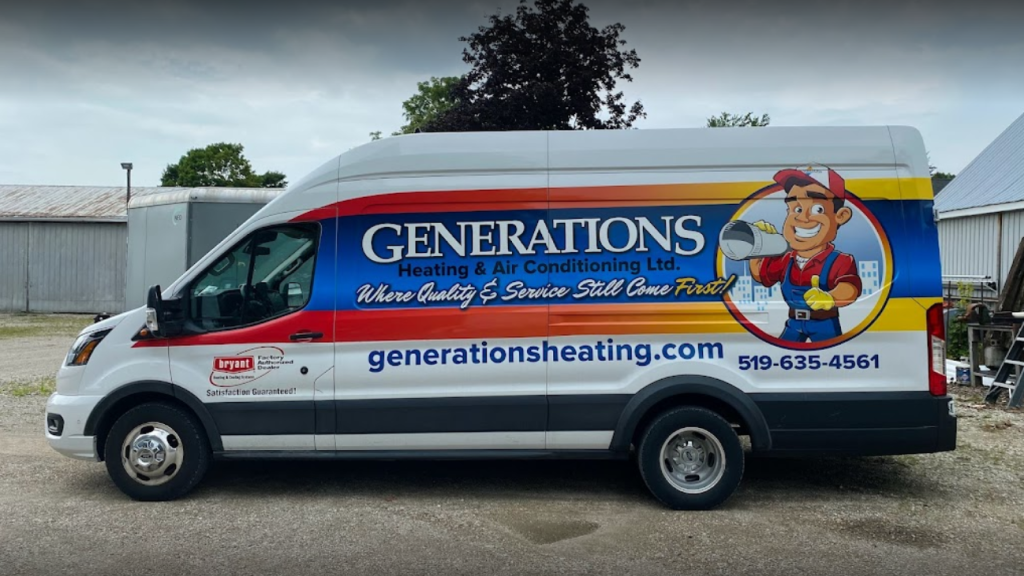
Deciding between a heat pump and an air conditioner comes down to understanding your home’s specific needs, your climate, and your energy goals. Both systems provide reliable cooling, but heat pumps offer the added benefit of year-round heating, making them ideal for moderate climates or homeowners looking to simplify their home’s comfort system. Air conditioners, on the other hand, deliver consistent cooling and can be paired with existing heating systems for homes in colder regions.
By considering factors such as efficiency, performance, cost, and climate, you can make a choice that balances comfort, long-term savings, and convenience. For Ontario homeowners, consulting with experienced professionals is key to ensuring your system is properly sized, installed, and maintained for optimal results.
If you’re ready to upgrade your home’s comfort system or want expert guidance on choosing between a heat pump and an air conditioner, the team at Generations Heating & AC is here to help. They can provide a personalized consultation, recommend the most efficient solution for your home, and assist with installation and maintenance every step of the way.
Contact Generations Heating & AC today to schedule your consultation today.
More Reasons to Choose Generations:
If it's the comfort of your house that you're concerned about, you want to work with a company you can trust. At Generations Heating & Air Conditioning, we pride ourselves on offering professional advice, honest service, and dependable help from start to finish.
Local Experts Serving Kitchener and Beyond
We know Kitchener's weather and home styles inside and out. Our recommendations are based on hands-on experience here, not guesswork.
Friendly, Knowledgeable Technicians
Our service pros are highly trained technicians who care about you and your home. We take the time to clearly explain your options and answer your questions so that you feel confident making every decision.
No Pushy Sales Tricks, Just Honest Advice
You'll never be pressured into buying something you don't need. We prioritize what's best for you and your home, not what's easiest to sell.
Start-to-Finish Service
From the moment you receive your quote to long after your new system is installed, we're with you. Expect clear communication, tidy work, and follow-up service you can trust.
Ready to experience the Generations difference? Book a free consultation today and get the best home comfort system for your needs and budget.
What Our Customers Are Saying...
"Great service. Rob and his co-op student were very punctual and efficient The work was done rapidly, and he was happy to also include inspecting our air conditioner. All are functioning well-not surprisingly since they were also installed by Generations in 2015. Additionally Rob proved to be a very clear and helpful instructor for his co-op student, who will gain valuable experience with Rob in his co-op placement with Generations.
Many thanks"
-Bob and Jean Ann Norman
"We have used generations for many years, they are very helpful, knowledgeable, on time. We’ve used them to install a furnace, move gas lines, install gas stoves, and do our yearly annual furnace maintenance. We are very happy with their service."
-Ela R
